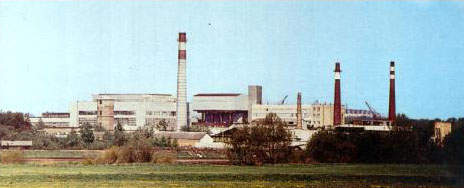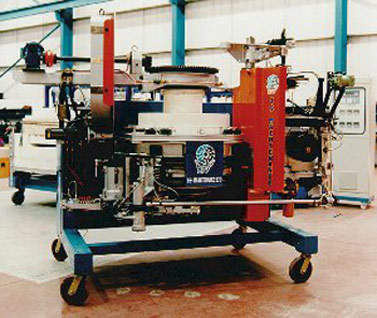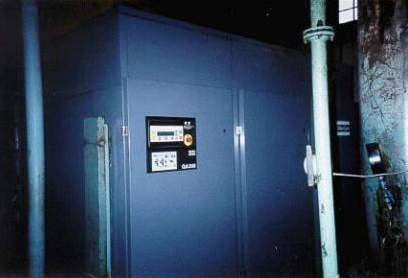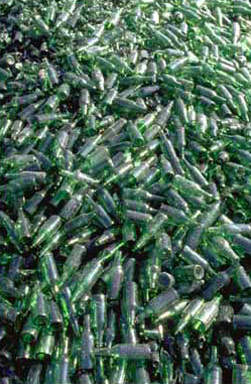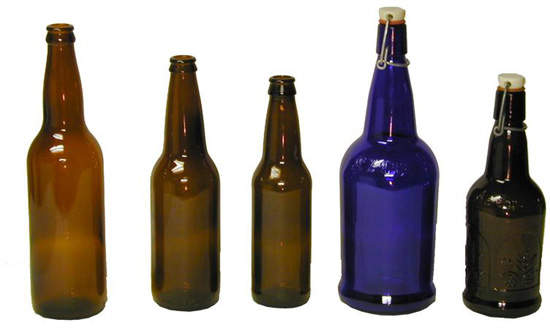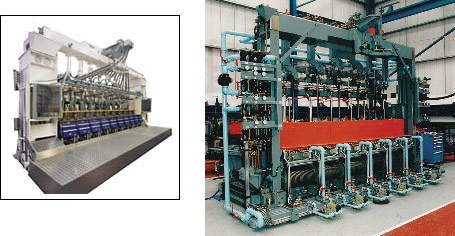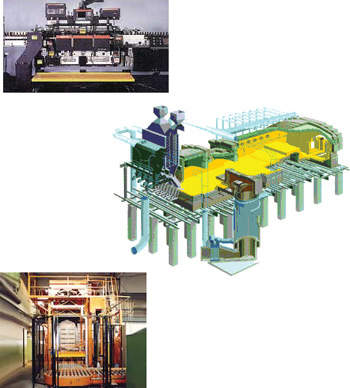In a major development, Vetropack – a Swiss-based producer of the European glass packaging industry, with production plants in Switzerland, Austria, the Czech Republic, Croatia and Slovakia – has acquired a majority stake in Gostomel Glass Factory near Kiev, Ukraine.
By acquiring one of the leading Ukrainian glass packaging producers with a workforce of about 900 employees, Vetropack hopes to continue its strategy of geographical expansion in Eastern Europe.
The acquisition
The acquisition of a 75% stake in Gostomel by Vetropack gives the company access to an additional market in Eastern Europe and represents a further milestone in its expansion strategy. Vetropack’s foray into the Eastern Europe took shape at the beginning of the 90s by acquiring glass packaging plants in the Czech Republic, Croatia and Slovakia.
Going by the present market volume of 2.4 billion units, domestic consumption growth in the Ukraine is well above the European average.
Business
Vetropack generated a consolidated turnover of CHF 283.7m in the first half of 2006, reflecting a 10.3% increase over previous year’s figure of CHF257.3m. At CHF23.2m the consolidated EBIT fell by 18.3% compared to last year (1st half 2005: CHF28.4m).
Production at Gostomel
In 2005, Gostomel produced 175,000 tons, which corresponds to 545 million units mainly for the domestic market. That was equivalent to about 15 percent of Vetropack Group output. Briefly, about two thirds of Gostomel output comprisesd beer bottles, the remainder being accounted by vodka bottles and a growing demand of soft drink bottles.
Gostomel Before Acquisition
In early 2002, Gostomel Glass Factory (GGF) was in the process of undertaking a major upgrade to its facilities. The expansion was necessary to supply two new breweries in the Ukraine with the bottles they need for their packaging requirements.
The expansion was being financed by the European Bank for Reconstruction and Development (EBRD) to the tune of $17m and was being syndicated to two private investors, Raiffeisen Zentral Osterreich AG of Austria and International Finance Participation Trust of Canada, at $11.5m. The total cost of the project was $20m.
The upgrade would have involved the construction of a new glass melting furnace (the fourth furnace at the facility) and the construction of three new bottling lines to produce beer bottles. The new facilities would give a production capacity of 600,000 beer bottles per day (220 tons of glass per day).
Phases of expansion
The project was Phase 2 of an expansion and upgrade plan, which had been in action since 1996 and had included a total revamp of the facility, a furnace upgrade and the implementation of a new glass bottle automatic production line. The end of Phase 1 in 2002 saw the facility achieve ISO 9001 status. Importantly, Phase 1 included work to make the plant much more energy efficient. This was undertaken by Pacific Northwest National Laboratories (PNNL), the Ukrainian Energy Efficiency Centre (ARENA-ECO) and Industrial Real Estate (IRE). Phase 2 of the upgrade began in late 2003 and was set to complete in early 2005.
Contractors
The engineering project consultant is Lorien Engineering Solutions of Lichfield, UK. The design and planning consultant is Continental Glass Engineering of Hamburg. The new glass furnace is being constructed and commissioned by Sorg of Germany. The three glass bottle automatic production lines will be supplied and commissioned by Emhart Glass AG and maintenance will be provided by IS Maintenance Ltd of the UK.
Glass bottle production line
The three new automatic production lines for glass bottles will be ten-section/double gob IS 5 Emhart machines. These machines are designed to give a production rate of 200 bottles per minute. The IS machines will provide 97% of the output of finished products from the new furnace and can produce bottles with capacities ranging from 50ml to 1 litre.
The new production lines will allow GGF to decrease the weight of beer bottles from the current range of 340g to 380g to ultra lightweight bottles weighing 280g to 240g (a substantial saving in raw materials) while retaining the 15bar pressure rating. Leading beer brands in the Ukraine (Slavutich, Rogan, Lvovskoye, Chernigovskoye, Sarmat, Yantar) have appreciated the new improved design and weight of bottles. For improved quality of finished products the lines will be equipped with modern automatic inspection equipment.
Glass furnace
The Sorg VSM electric furnace is a cold top, vertical melter, in which the processes of batch charging, melting, refining and homogenisation all take place in the vertical direction. The electrodes are divided into two electrode levels to give finer control of the vertical temperature gradient throughout the furnace. There will be specially developed molybdenum top electrodes installed. These electrodes are inserted through the furnace superstructure and enter the glass bath through the surface. The electrodes may be swung out of the furnace for inspection and maintenance or replacement. Their installation through the superstructure rather than the tank side walls reduces refractory wear of the tank blocks.
The VSM furnace uses the patented rotating crown batch charging system. In addition, the complete superstructure is easy to seal, which means that dust suppression can be done with a simple bag filter. This furnace is being built for a melting capacity of up to 180t every 24 hours.
Customers
GGF has manufactured bottles for international customers such as Coca-Cola, Sun Interbrew and BBH. Russian clients include the St Petersburg-based breweries Baltika and Vena. Ukrainian customers include CJSC Lugansk liqueur and vodka bottling plant, Petrus Ltd, Borschagovskiy chemical pharmaceutical plant, JSC Galichfarm, PKK ROSO Ltd and PPK Avalon.

